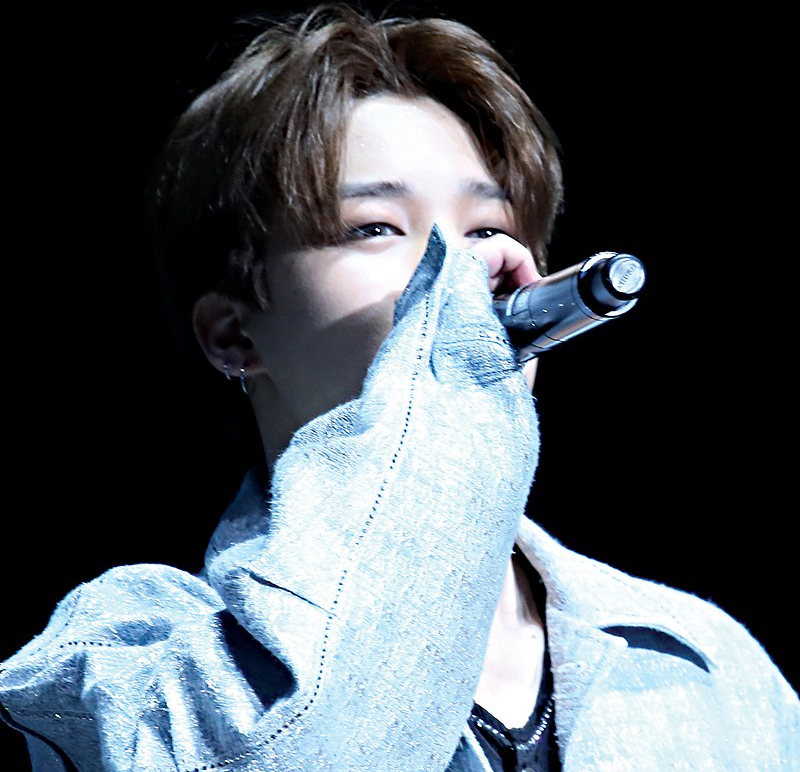Written by Esosa Zuwa, a writer.

For years, fans have been enraptured by BTS member Park Jimin’s face, watching him deliver dreamy vocals and charm the world with stunning visuals. In his newest album, Face, Jimin asks listeners to look beyond his well-loved visage, giving a glimpse into his self and psyche. Inspired by deep mental introspection during the pandemic and produced by the likes of longtime BTS producers Pdogg and Adora, the songs in Face discuss the tumultuous experience of finding oneself.
These themes are especially prominent in the pre-release single “Set Me Free Pt.2.” It’s a heavy orchestral song that sounds like a baroque-hip-hop reimagining of the Phantom of the Opera. While the beginning is haunting and overwhelming, bringing to mind an evil monarch from a dark fantasy novel arising and looking at his subjects, the tone brightens later on. A breath of fresh air, “Set Me Free Pt.2” breaks out of the corporate, try-hard, bubble-gum pop rebellion and manufactured authenticity characteristic of traditional K-pop music. Still, the song falls short: it is overwhelmingly loud, and it tries to be everything all at once.
“Like Crazy,” the title track of this album, succeeds where “Set Me Free Pt. 2” fails: it spins deep house music and ’80s synth-pop in a blender and gives listeners a dreamy indie disco beat. The tune evokes the pleasant butterflies one might feel in the presence of one’s crush, but also encompasses deeper themes, discussing the duality of the self.
The album takes a strange but interesting turn in“Interlude: Dive,” which has no lyrics and instead uses bits of miscellaneous audio compiled together. The song starts off sounding like a backwards loop, as if everything that exists is being sucked into some vacuum. It grows more intense until it stops with a knock on a door. Subsequently, smooth, lo-fi melodies emerge, overlaid with audio snippets of spoken words, breathing, and Jimin speaking while a crowd cheers loudly for him. There are no words, but the audio present tells a story: Jimin lets us in on the duality of being a global star, universally adored, but lonely nonetheless.
The next song, “Face-off,” has a rebellious, angry tone that, like “Set Me Free Pt.2,” breaks the flawless, unauthentically sad aesthetic of K-pop. Starting off with a horn melody similar to that of a circus or carnival, it then transitions into deep vocals followed by a trap beat, utilizing bells and strings to create an angelic backdrop in the post-chorus. It’s hauntingly beautiful. “Face-off” confronts pain, rather than avoiding it, and like “Interlude: Dive,” it delves into two selves—one put-together and tidy, the other raw and rebellious. It also pits those who want Jimin to conform to their standards and perform for their enjoyment against Jimin himself and his sense of personhood.
Finally, there’s “Alone,” the climax of self-discovery. It’s a smooth, jazzy, lo-fi ballad that builds upon itself with a soft guitar and piano, escalated by a ticking alarm clock in the background. The song dives into the truest form of fear: loneliness without distraction. Jimin embarks on his journey with this isolation and looks to finally come to terms with the person he has been hiding from.
Face, although not revolutionary, is a deeply personal album. It helps listeners examine themselves as humans and understand how deeply entrenched strong emotions can become. Carried by Jimin and his soft vocals, Face is assertive, solidifying identity and a sense of self.
